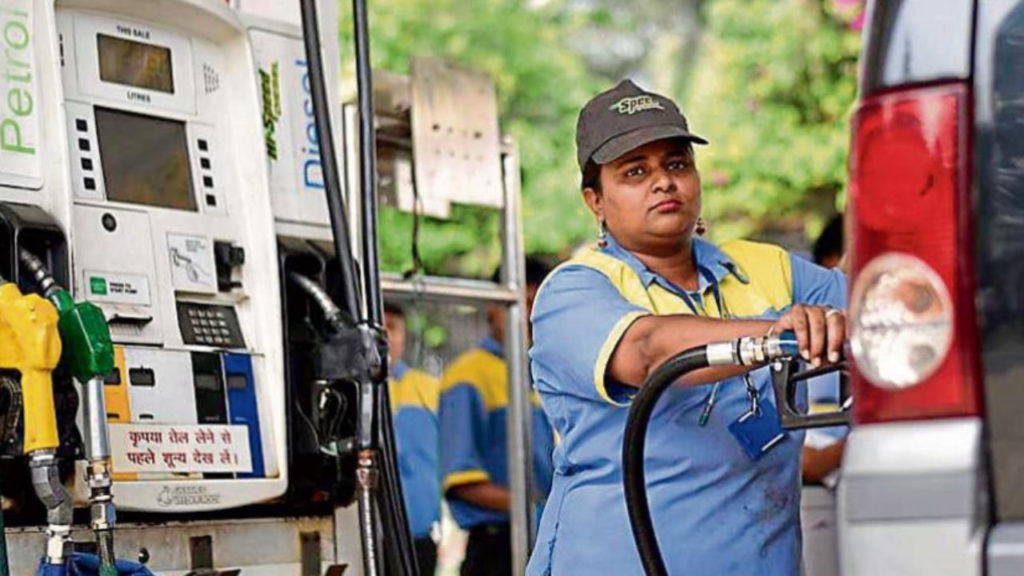Bharat Petroleum, HP, IOC Joins Forces To Make Petrol Cheaper By Rs 10: Signs Pact For Ethanol Blending

In what could suggest an era of cheaper fuel transportation in India, On Wednesday, three state-owned oil marketing companies and three public sector banks, including the State Bank of India (SBI) made a long-term purchase agreement for the construction of five dedicated ethanol plants across India.
Indian Oil Corporation, Bharat Petroleum Corporation and Hindustan Petroleum Corporation have entered into an agreement with SBI, Indian Overseas Bank and Indian Bank for payment for the supply of ethanol.
Ethanol produced by the dedicated plants will be sold to OMCs to mix with petroleum. Indian pumps are likely to start selling petrol blended with 20% ethanol by the year 2025. This could lessen the cost per liter by almost Rs 10 and also help drastically reduce inflation.
A $10 per barrel rise in crude oil prices increases the wholesale price inflation by almost 1.7% points.
This will reduce the country’s dependence on oil imports
Ethanol will be mixed with gasoline to reduce the amount of gasoline used by the vehicle. This will reduce the country’s import dependence, which fulfills more than 85% of its oil demand from abroad. Additionally, it is less polluting and as efficient as a gasoline vehicle. So far India has achieved 9.90% ethanol blending in petroleum and hopes to reach the 20% target by the year 2025-26. It saved more than Rs 9,000 crore in foreign exchange, said an official.
But, the biggest challenge is the shortage of ethanol to achieve this target. The country requires 1,016 crore liters of ethanol to achieve the 20% target in the year 2025-26. But, there is a lack of more than 650 crore liters of ethanol, as per official estimates.
The sugar industry may divert 60 lakh tonnes of extra sugar to produce the estimated 700 crore liters of ethanol needed. Plans are also being made to produce almost 500 crore liters of ethanol from extra grain. Last year, the government also permitted the mixing of ethanol obtained from surplus grains.
Vehicle company’s reaction
The plan to switch to E20 fuel was met with a mixed reaction. While some car manufacturers like the country’s largest carmaker Maruti Suzuki have taken the decision well and welcomed it, others have expressed concerns. However, two-wheeler manufacturers like Bajaj Auto, TVS and Toyota have recently agreed to make engines that will help vehicles adapt to a higher percentage of ethanol blend.
At first, the government plans to mix 20% of the oil sold in the country. Experts say the car’s engines have to be adjusted for shifting to E20 fuel to prevent rust and improve mileage.

Comments are closed, but trackbacks and pingbacks are open.